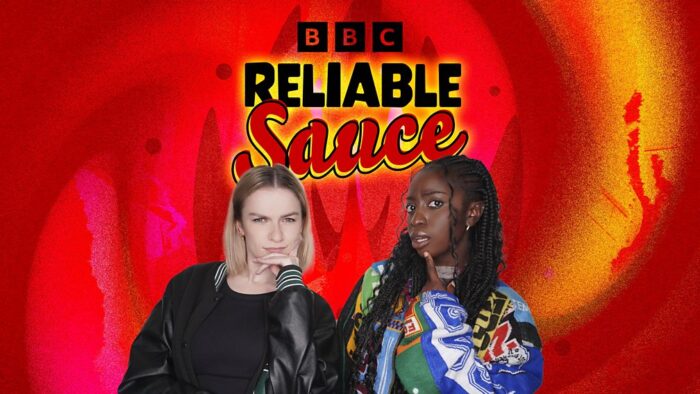
We all know the direction of travel, even if we don’t know the stats off by heart: Legacy media hasn’t figured out how to give young people what they want. And it doesn’t really get more “legacy media” than the 101-year-old, publicly funded British Broadcasting Corporation.
Here are some of those unsurprising but nonetheless grim stats, courtesy of Oxford’s Reuters Institute for the Study of Journalism: The proportion of 18-to 24-year-olds in the U.K. who access online news directly through a news website or app is 24%, down from 52% in 2018. (The same statistic for over-35s has stayed about the same, at just over 50%.) More than three quarters of 18-to 24-year-olds who watch news-related videos find them on social media. Turning to the BBC specifically, only 36% of 18-to 24-year-olds said the corporation was “important to me” in 2023, compared with 51% of over-55s. (2023 was the first year RISJ started collecting BBC-specific data.)
The funding model of the BBC means it can’t just give up on younger audiences and simply serve its main audience of older, more affluent people. The BBC receives a license fee from every U.K. household and business that has a TV. The flat fee, £169.50 (USD $216) in 2024, means that everyone who pays it has an equal right to be represented by the BBC, no matter their income, age or background. And the BBC’s Royal Charter — effectively its constitution — states that the BBC must “act in the public interest, serving all audiences.” Together, these mean the BBC has a duty to be for everyone in the UK.
Just because news habits are changing, it doesn’t mean there is no appetite for it. “It’s quite lazy to say that young people don’t care about news,” said Kirsty Grant, co-host of the BBC’s Reliable Sauce podcast. “They’re switching off the news. But I think that’s not the same as not wanting to understand or not caring.” (Disclosure: I worked with Grant in another department at the BBC a few years ago.)
The Reliable Sauce podcast, which Grant created with fellow TikTok journalist and presenter Jonelle Awomoyi, is the BBC’s latest attempt to get that younger audience back. Made by the BBC’s streaming media service BBC Sounds and BBC News’ social media team, it’s a simple concept: Two journalists from the BBC newsroom chatting about the week’s stories, over the course of about half an hour. But it attempts to takes the stuffiness out of news presentation. It sounds as if you are listening in to a conversation they might have over a coffee, or on the tube back from work. Underpinned by strong journalism and fact-checking, it draws on audience comments on the BBC News TikTok posts as well as its co-hosts’ personal accounts. An episode that came out a few weeks into the Israel-Gaza conflict transitioned from chat about celebrity Halloween costumes, to exam stress at school, to the verification methods used by journalists to combat misinformation about the conflict on social media.
https://www.tiktok.com/@jonelleawomoyi/video/7285087033771429153
Both in their twenties, Grant and Awomoyi understand the audience they are searching for because they are part of it. The podcast idea came from “a very turbulent news time” at the start of the Ukraine war, says Grant. “We were getting loads of our friends messaging saying, ‘Can you explain what’s going on? Like, send me a voice note.’” That then turned into the podcast, which they piloted on their days off, sending around different departments at the BBC. “I think this worked because we came up with the idea first rather than bosses,” Grant says.
Watch on TikTok
“I can give you the official line, [which] might be something like, ‘Well, yes, we recognized that there was a need for young audiences,’” said Nicky Birch, editor of news formats and innovation at BBC Sounds, the corporation’s audio platform. But its success, she says, comes from the fact that it wasn’t “made out of a board room of people saying, ‘We need some content for young people working with TikTok.’”
Birch’s background is not in news, but in podcasting for private companies such as Somethin’ Else, an audio production company now owned by Sony Music Entertainment. “News for young people is information that matters to them — rather than perhaps what the BBC has always traditionally decided is news,” Birch said. She thinks that approach is working. On BBC Sounds, 28% of Reliable Sauce listeners are under 35 — the highest proportion of under-35 listeners of any of the BBC’s audio news products.
The less rigid definition of news is also recognized by BBC News’ social team. “There is an entire growing audience that consumes journalism and news on social,” said Blathnaid Healy, executive news editor for growth, social and delivery. The overarching goal is to bring audiences from social media to BBC platforms. However, “when it comes to the under-25s, we’re thinking about them slightly differently, because we’re very conscious that there are many ways in which that group consumes on the social web,” she said. This means “really observing creators, people on those platforms, who have resonated an awful lot with the audiences that you’re trying to reach.”
Just as important as the presentation style is the selection of stories. Anyone can make a TikTok. It is much harder to make one people actually care about. Healy continued: “If your editorial agenda is relevant, then you start to see your selections, how you’re thinking about your strategy around that platform, be validated with [the] numbers.” Validated they have been: Clips of the podcast made four million impressions on TikTok, with 87% of the audience for posts tagged #reliablesauce in the 18-24 age category.
Imran Rahman-Jones is a freelance multimedia journalist who spent four years reporting on young people for the BBC. He is based in Scotland, where he runs the Edinburgh Pub Reviews newsletter.